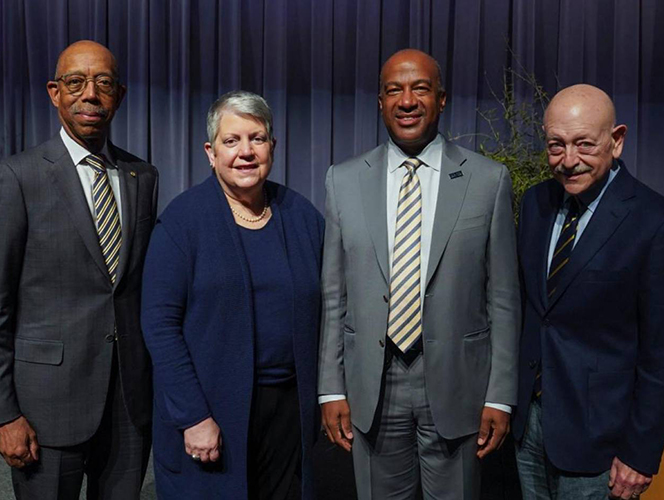3 UC Presidents and Gary S. May

UC Davis Chancellor and EECS alumnus Gary S. May (M.S. ’88/Ph.D. ’91, advisor: Costas Spanos) took the stage with UC President Michael V. Drake and Presidents Emeriti Janet S. Napolitano and Mark G. Yudof for the UCD Chancellor’s Colloquium on March 8th. The four discussed the challenges they faced and lessons learned during their tenures in office. Topics included the impact of the pandemic on campus communities, the importance of public health, and the efficacy of remote learning; the university’s federal lawsuit over the Deferred Action for Childhood Arrivals (DACA) program; approaches to managing UC funding cuts, including maintaining access to retirement plans and student aid; and America’s cultural and democratic future, including ways that universities might help shape it.